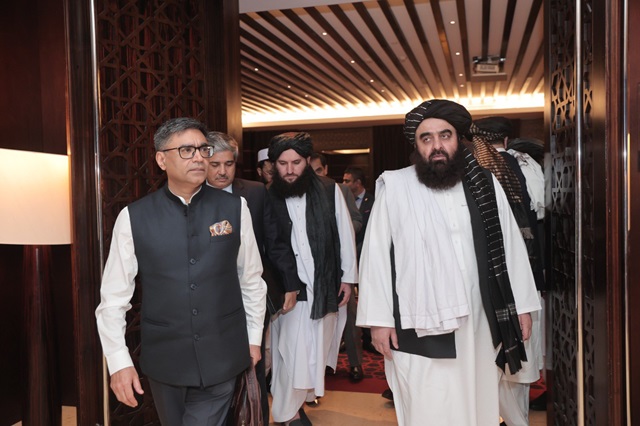India Engages with Taliban Amid Geopolitical Shifts
In recent months, India has intensified its engagement with the Taliban. This move comes amid geopolitical changes in the region. The Taliban, having established control over Afghanistan since August 2021, has sought stronger ties with India. Meanwhile, India aims to protect its national and security interests against a backdrop of shifting alliances and regional instability.
Key Factors Influencing India’s Engagement
India’s decision to engage with the Taliban is driven by several critical factors. Firstly, Pakistan, once a supporter of the Taliban, has become an adversary. Tensions have escalated between the Taliban and Pakistan, particularly following airstrikes that resulted in civilian casualties. Secondly, Iran’s influence has waned due to its preoccupation with its own regional challenges, particularly after Israel’s military actions against its proxies.
Russia’s Changing Stance
Russia’s focus has shifted towards its ongoing conflict in Ukraine. President Vladimir Putin has expressed a willingness to collaborate with the Taliban, viewing them as allies in combating terrorism. This marks change, as Russia had previously classified the Taliban as a terrorist organisation. The evolving dynamics in Afghanistan have led to a reassessment of relationships in the region.
China’s Growing Influence
China has been making inroads into Afghanistan. By sending ambassadors and engaging in development projects, China aims to tap into Afghanistan’s natural resources. The Taliban has welcomed this support, contrasting it with the withdrawal of Western nations. India’s concerns are heightened as it observes China’s Belt and Road Initiative expanding into Afghanistan.
The Role of the United States
The prospect of Donald Trump’s return to the White House adds another layer of complexity. The previous Trump administration initiated talks with the Taliban, leading to the withdrawal of US troops. India is wary of potential shifts in US policy that may affect its strategic interests in Afghanistan. The timing of India’s diplomatic engagements reflects these concerns.
- Deepak Mittal: Indian ambassador who first met Taliban representatives in Qatar.
- Sher Mohammad Abbas Stanikzai: Former Indian Military Academy cadet and Taliban Deputy Foreign Minister.
- Islamic State Khorasan Province: A security threat in Afghanistan, of concern to India.
- Chabahar Port: A strategic trade route for India to Afghanistan, bypassing Pakistan.
- Vikram Misri: India’s Foreign Secretary who engaged with Taliban officials in Dubai.
Humanitarian and Development Aid
India has committed to providing humanitarian aid and development support to Afghanistan. The Taliban has expressed appreciation for India’s past projects, which total approximately USD 3 billion over two decades. The Government of India aims to maintain its influence and support the Afghan people, despite the Taliban’s controversial governance.
Security Concerns for India
India’s primary concern remains the prevention of terrorism emanating from Afghan soil. The Taliban has assured India of its commitment to combatting threats from groups like the Islamic State Khorasan Province. Ensuring the safety of Indian interests and personnel in Afghanistan is a top priority for New Delhi.
Conclusion of Engagement Strategy
India’s engagement strategy with the Taliban is multifaceted, considering regional dynamics and security imperatives. The evolving geopolitical landscape necessitates a careful approach to maintain stability and protect national interests in Afghanistan.
Month: Current Affairs - January, 2025
Category: International / World Current Affairs








